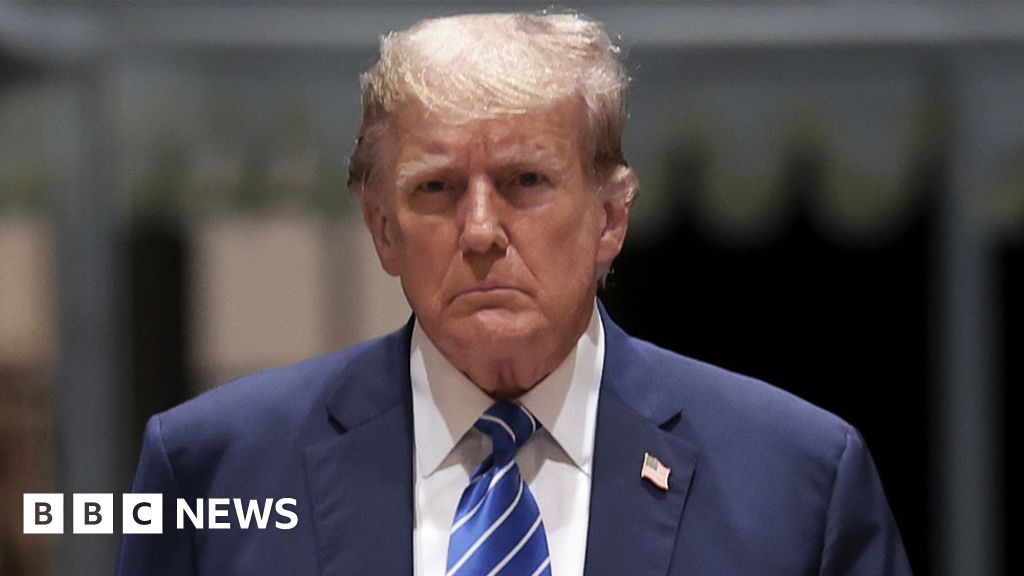Donald Trump's demand for voter ID has been a highly debated topic in American politics, sparking discussions about election integrity, voter suppression, and democratic principles. As the former president continues to push for stricter voting regulations, understanding the implications of this policy is more crucial than ever. This article aims to provide a detailed overview of the issue, its history, and its potential consequences for the American electoral system.
The debate surrounding Trump demands voter ID has intensified in recent years, with proponents arguing that it is necessary to prevent voter fraud, while opponents claim it disenfranchises marginalized communities. This divide highlights the complex nature of the issue and the need for an informed discussion.
In this article, we will explore the history, arguments, and controversies surrounding Trump's push for voter ID laws. We will also examine the potential impact on voters, election integrity, and the future of American democracy. By the end of this piece, you will have a clearer understanding of the key issues at stake and the implications of this policy.
Read also:Unlocking The Secrets Of Ero Me Oorn A Deep Dive Into Trends Insights And Everything You Need To Know
Table of Contents
- Donald Trump's Biography
- History of Voter ID Laws
- Arguments for Trump Demands Voter ID
- Arguments Against Trump Demands Voter ID
- Impact on Elections
- Legal Challenges
- International Perspective
- Public Opinion
- Future Outlook
- Conclusion
Donald Trump's Biography
Early Life and Career
Donald J. Trump, born on June 14, 1946, in Queens, New York, is a prominent figure in American politics and business. Before entering politics, Trump built a successful real estate empire and became a household name through his reality TV show, "The Apprentice."
Political Career
Trump's foray into politics began with his election as the 45th President of the United States in 2016. During his presidency, he implemented several controversial policies, including his push for stricter voter ID laws.
| Full Name | Donald John Trump |
|---|---|
| Date of Birth | June 14, 1946 |
| Place of Birth | Queens, New York |
| Profession | Businessman, Television Personality, Politician |
| Political Party | Republican |
History of Voter ID Laws
Voter ID laws have a long and contentious history in the United States. The concept of requiring identification at polling stations dates back to the early 20th century, with the first laws enacted in the 1950s. Over the years, these laws have evolved, becoming increasingly strict in some states.
Trump demands voter ID have gained momentum in recent years, particularly after the 2020 election. Proponents argue that these laws are necessary to prevent voter fraud and ensure the integrity of the electoral process.
Arguments for Trump Demands Voter ID
Supporters of stricter voter ID laws cite several reasons for their necessity:
- Preventing Voter Fraud: Proponents argue that requiring identification at polling stations can help prevent fraudulent voting practices.
- Ensuring Election Integrity: By verifying the identity of voters, these laws aim to uphold the credibility of the electoral system.
- Restoring Public Confidence: Advocates believe that implementing voter ID laws can rebuild trust in the democratic process.
Arguments Against Trump Demands Voter ID
Opponents of Trump demands voter ID laws raise several concerns:
Read also:Bruce Venture The Ultimate Guide To Understanding His Legacy And Impact
- Voter Suppression: Critics argue that these laws disproportionately affect minority groups, the elderly, and low-income individuals who may not have access to proper identification.
- Limited Voter Fraud: Studies have shown that instances of voter fraud are extremely rare, making these laws unnecessary.
- Barriers to Voting: Requiring ID can create additional hurdles for eligible voters, potentially reducing voter turnout.
Impact on Elections
Effects on Voter Turnout
Research indicates that strict voter ID laws can lead to a decline in voter participation, particularly among marginalized communities. This decline may skew election results and undermine democratic principles.
State-by-State Variations
While some states have implemented stringent voter ID requirements, others have taken a more lenient approach. This disparity highlights the need for a standardized federal policy on voting regulations.
Legal Challenges
Trump demands voter ID laws have faced numerous legal challenges in court. Opponents argue that these laws violate the Voting Rights Act and the Constitution by disenfranchising certain groups. Several cases have reached the Supreme Court, with mixed outcomes.
International Perspective
Other democracies around the world have implemented voter ID laws with varying degrees of success. Examining these international models can provide valuable insights into the potential benefits and drawbacks of such policies.
Public Opinion
Public opinion on Trump demands voter ID is divided, with supporters and opponents holding strong views. Polls indicate that while a majority of Americans favor some form of voter ID requirement, many are concerned about the potential for voter suppression.
Future Outlook
The debate over Trump demands voter ID is likely to continue, with both sides presenting compelling arguments. As the United States grapples with issues of election integrity and democratic participation, finding a balanced approach will be essential.
Conclusion
In conclusion, Trump demands voter ID has sparked a heated debate about the future of American democracy. While proponents argue that these laws are necessary to prevent fraud and ensure election integrity, opponents claim they disenfranchise vulnerable populations. As the nation moves forward, it is crucial to consider the implications of these policies and work toward a solution that upholds both security and accessibility.
We invite you to share your thoughts in the comments section below and explore other articles on our site for more in-depth analyses of political issues. Together, we can foster a more informed and engaged citizenry.
References:
- U.S. Election Assistance Commission
- Brennan Center for Justice
- Supreme Court decisions on voter ID laws
- International studies on voter ID implementation


